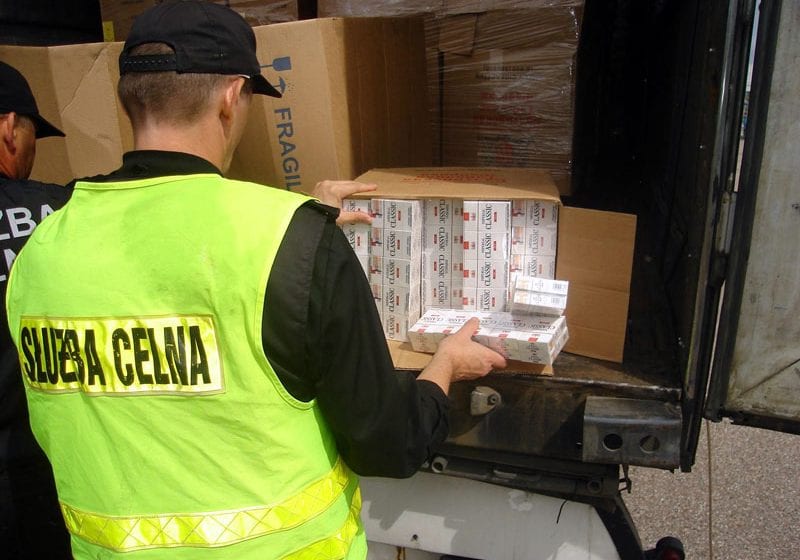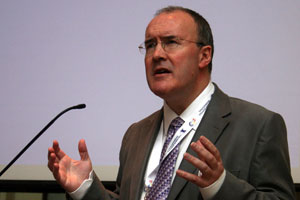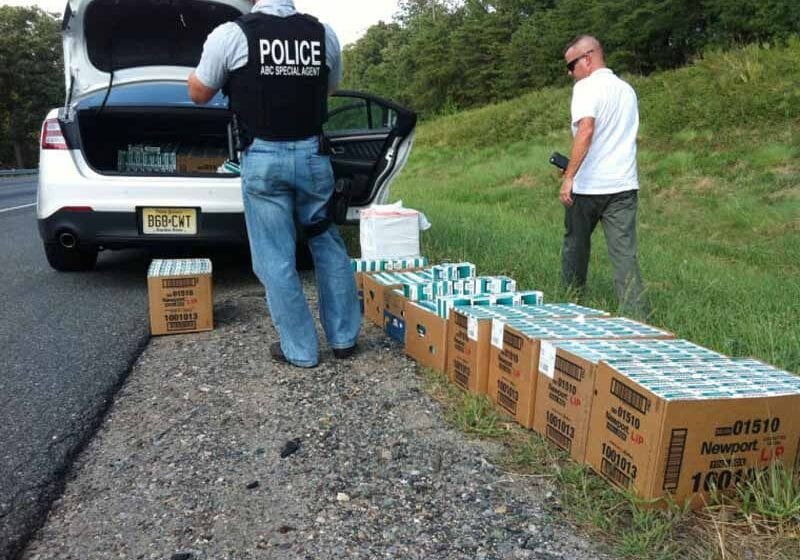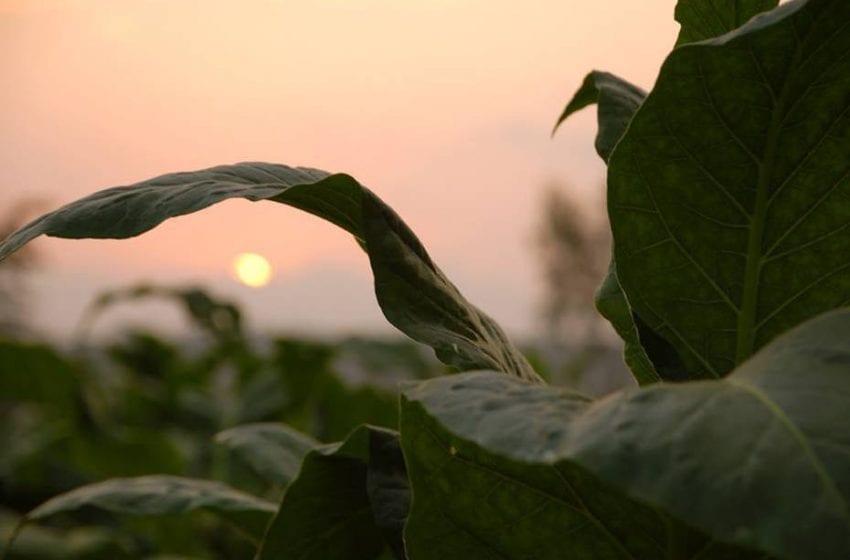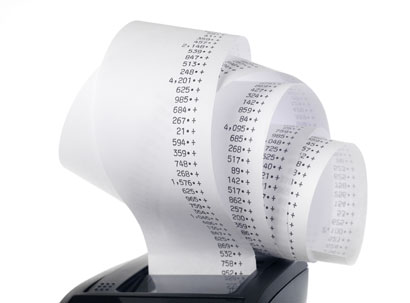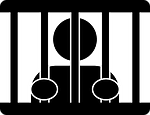A tobacco-grower representative has asked the Pakistan government to provide incentives and lower taxes in respect of tobacco production, according to a story by Muhammad Riaz Mayar for The News.
Niamatullah Shah Roghani, vice-president of Anjuman-e-Kashtkaran Khyber Pakhtunkhwa, was quoted as saying that tobacco contributed to the federal exchequer more than Rs114 billion a year in sales tax and federal excise duty (FED).
However, he said that while tobacco growing could provide a good income, tax increases had made it almost impossible for poor farmers to continue with tobacco cultivation.
Niamatullah added that the government had imposed FED of Rs10.00, an advance withholding tax of Rs8.80, a federal government cess of Rs3.67, and a provincial excise cess of Rs5.00 on each kg of leaf tobacco.
All these taxes were deducted by tobacco companies from the prices paid to growers.
“This was the reason that in 2017 there was no competition in the market and tobacco prices were even below the production cost,” he said.
“The government allowed the companies to bring down prices of cigarettes and this was reason the farmers didn’t get a good price which resulted in billions of rupees loss to them, besides reduction in price of third slab’s cigarettes,” he added.
Niamatullah demanded that the five percent advance withholding tax, the FED on tobacco leaf of Rs10.00 per kg and the federal government cess of Rs3.67 per kg on leaf tobacco be included in the federal excise duty on cigarette production.
He said that tobacco farmers in Swabi, Mardan, Charsadda, Nowshera, Buner, Swat and Mansehra had been suffering due to the apathy of the government.
Either the government met their demands, he added, or else they would start agitation all over the province.
Category: Taxation

Agitation threat in Pakistan

Illegal trade at 16 percent
The Romanian state received no revenue from the sale of 16 percent of the cigarettes consumed in Romania last year, according to a story in The Romania Insider.
This is because those cigarettes were sold by people who were involved in the illegal trade in tobacco products and who reaped the profit from those sales.
If those cigarettes had been sold legally, tax-paid, the government would have received an additional €640 million.
It is estimated that more than 4.3 billion cigarettes were sold on Romania’s black market last year, while the country’s agencies seized about 150 million.
An operation mounted during the first half of 2017 is said to have reduced smuggling, but according to the local affiliate of British American Tobacco, the illegal trade boomed once that operation stopped.
The Insider said that Romania’s tobacco-products black market was bigger than the EU average, which stood at about nine percent.
From 2010 to 2017, Romania was said to have ‘lost’ about €5.4 billion to the illegal trade in cigarettes.
Reducing risk reduction
A smokers’ lobby group has criticised the UK government’s plan, revealed yesterday, to introduce an excise tax on heated tobacco products.
According to the government, the duty on these products will be based on the weight of tobacco in the product.
“Heated tobacco may not be as safe as electronic cigarettes but current evidence suggests there is almost certain to be a reduction in risk for cigarette smokers,” said Simon Clark (pictured), director of Forest [Freedom Organisation for the Right to Enjoy Smoking Tobacco].
“Why would any government want to undermine the future of a product that may encourage smokers to quit voluntary and without coercion?”
Clark pointed out that many smokers who tried electronic-cigarettes found they didn’t like them. The attraction of heated tobacco was that it filled the gap between combustible cigarettes and e-cigarettes, which don’t contain tobacco.
“Heated tobacco products are still in their infancy,” he said. “Adding excise duty will almost certainly deter many smokers from switching to a potentially safer device.”
Pyrrhic victory
The Israeli Knesset’s Finance Committee has approved a measure to tax heated-tobacco products such as Philip Morris International’s IQOS at 65 percent of the retail price, in line with the tax on cigarettes, according to a story by Chana Roberts for Arutz Sheva, relayed by the TMA.
Anti-smoking groups Avir Naki and Smoke Free Israel, and bipartisan members of the Knesset (MK), had been lobbying the Finance Minister Moshe Kahlon and the Finance Committee head Moshe Gafni to tax these products.
The groups and the Likud MK Yehuda Glick had asked the Supreme Court to force Kahlon to tax IQOS as cigarettes “until there is substantial, and substantiated, proof that IQOS are not as harmful as regular cigarettes.”
The new tax is expected to generate NIS120 million (US$34. million) annually.
Meanwhile, PMI was said to have emphasized that the company would concentrate on ‘rolling tobacco’ instead of products claimed to be a ‘better alternative’ to regular cigarettes.
Declarations made
The World Conference on Tobacco or Health (WCTH) has called upon governments to develop plans by 2021 for phasing out the sale of tobacco products.
In a statement, the WCTH, which held its 17th conference in Cape Town, South Africa, on March 7-9, also made 10 declarations.
In a preamble to the declarations, the WCTH said the tobacco epidemic represented one of the biggest public health threats the world had ever faced.
‘Tobacco use kills more than seven million people each year, and the vast majority of these deaths take place in low- and middle-income countries.
‘The global economic cost of smoking amounts to nearly two trillion dollars and two percent of the worlds GDP in 2016.
‘Tobacco use also undermines sustainable development, imposing a huge burden on the global economy, exacerbating poverty, contributing to food insecurity, and harming the environment.
‘There is an irreconcilable conflict between the manufacture and marketing of tobacco products and the right to health.
‘The tobacco industry is a driver of poverty and linked to child labor, violation of workers’ rights, food insecurity and exploitation of farmers. African governments need to take concrete and urgent action to implement alternative livelihoods that are the rich sources of income free from tobacco.
‘Ending the scourge of tobacco and achieving the SDGs [sustainable development goals] will require urgent action.
‘Therefore the 17th World Conference on Tobacco or Health affirms the following:- We call on governments to unite with civil society to stop tobacco industry interference and accelerate implementation of the WHO FCTC [World Health Organization Framework Convention on Tobacco Control] using a whole-of-government approach.
- We urge governments, scientists, research entities, foundations, and civil-society organizations to reject or cease engagement with the Philip Morris International-funded Foundation for a Smokefree World and other initiatives of the tobacco industry
- We adopt the Cape Town Declaration on Human Rights and a Tobacco-free World (https://unfairtobacco.org/wp-content/uploads/2018/03/Cape-Town-Declaration_Human-Rights_Tobacco-free-World-1.pdf).
- We call on African governments to operationalize the Addis Ababa Action Agenda on financing for development that recommends increasing tobacco taxes as an untapped, sustainable domestic resource mobilization strategy, for accelerating the implementation of the WHO FCTC in Africa.
- We call on Parties to actively engage in the development of the WHO FCTC Medium Term Strategic Framework and Plan and to endorse them at the forthcoming eighth session of the Conference of the Parties of the WHO FCTC.
- We support the concept of a tobacco-free generation and commit to empowering youth involvement and advocacy as a means to achieving a tobacco-free world (http://wctoh.org/news/youth-pre-conference-delegates-unite-to-build-a-tobacco-free-generation/).
- We call on Finance Ministers to actively support the WCTOH 2018 Declarations by prioritizing sustainable funding for tobacco control and ceasing public and private investment in the tobacco industry.
- We call on governments to extend as a priority, fiscal policies to continually decrease the affordability and accessibility of tobacco products
- We call on the Parties to the WHO FCTC to integrate gender-based data-collection and reporting into Party reports to the Conference of the Parties [COP] on their implementation of the WHO FCTC by COP9.
- We call upon the International Labour Organisation (ILO) to align with the decision of the UN Economic and Social Council (ECOSOC) and end its collaboration with the tobacco industry immediately.’

Tax up, revenue down
An EY (Ernst & Young) review of tobacco tax policy in Ontario, Canada, has shown tax rate increases are reducing revenue for the province as consumers turn to a growing contraband market.
In a press note EY said the provincial government had introduced a $3-per-carton price-increase in February 2016, followed by an additional $2-per-carton increase in April 2017, and had foreshadowed further $4-per-carton increases in both 2018 and 2019.
‘Tax revenue for the province, meanwhile, has fallen short of expectations by $240 million over the five-year period from 2013 to 2017,’ EY said.
‘Research shows that continued tax rate increases are widening the price gap between legal and contraband tobacco. Legal cigarette prices have increased by 15 percent since Q4 2014. What was then a $54 per carton price gap grew to $66 per carton in Q3 2017.
‘EY research suggests that additional planned tobacco tax increases by the government of Ontario will drive that price gap to $78 per carton by the end of 2019. This could divert more legal taxed consumption into the untaxed contraband market instead. Data suggests legal demand will fall by almost 11 percent in 2018 and an additional seven percent in 2019.
‘Contraband tobacco already represents more than one third (33.8 percent) of the total market in Ontario. What’s more, Ontario accounts for over 80 percent of the total tobacco contraband market in Canada. This translates into $750 million in lost provincial revenue, or “tax gap,” per annum.’
The EY report suggests that with recent federal and Ontario tobacco tax increases, the province could see revenues fall short of its forecasts by $235m per year in 2018-19 and 2019-20.
Based on these figures, the report recommends the provincial government consider alternative taxation plans and enforcement measures to mitigate the flow of revenue to the contraband market.
Illegal tobacco growing
Police have uncovered five ha of illicit tobacco being grown in the Australian state of Victoria, according to a story in the Ballarat Courier.
The tobacco was said to have been found at Dunnstown, which is close-to and east of Ballarat.
Police officers said on Monday that an investigation into the illegal tobacco trade had led to the arrest of two men and the seizure of guns, ammunition and tobacco in Dunnstown.
Ballarat detectives were said to have joined forces with the Australian Taxation Office before executing a number of search warrants on Thursday.
The search was said to have uncovered five ha of tobacco plants, 4.2 tonnes of tobacco leaves, equipment used to process tobacco, and three unregistered guns and ammunition.
A 66-year-old man and 61-year-old man, both from Dunnstown, were arrested at the scene.
They have been assisting police with their inquiries but no charges had been laid as of Monday afternoon.
SEKAP fine suspended
The First Instance Administrative Court of Komotini, Greece, has suspended a €44 million (US$54.2 million) fine imposed on SEKAP SA for alleged customs violations dating from 2008, prior to its acquisition by the Russian-Greek investor Ivan Savvidis, according to a Greek Reporter story relayed by the TMA.
The court accepted the company’s request and suspended the execution of the notice of the Xanthi customs office for the payment of a fine of €38 million (US$46.8 million), which had increased to €44 million with the accumulated penalties for being in arrears since 2009.
Employees of the tobacco company supported the suspension application filed by Savvidis’ lawyer Alexandros Lykourezos, arguing that the company would be forced to go bankrupt if the fine were not overturned.
Tax structure hits TTM
The state-run Thailand Tobacco Monopoly (TTM) is expecting to make the first loss of its 79-year history following the imposition of new excise tax rates that, it claims, have benefited importers of foreign cigarettes, according to a story in The Bangkok Post.
The TTM will make a loss of about 1.5 billion baht this year because it has not been able to reduce its spending in light of the new tax, which was implemented in September, said Daonoi Suttiniphapunt, the company’s MD.
Under the new tax structure, packs of cigarettes with a retail price of more than 60 baht are subject to a 40 percent levy, while cheaper packs attract a rate of 20 percent.
Daonoi said that the suppliers of some foreign brands had lowered their prices to avoid the high tax. This was possible for them because they bore lower production costs than did the TTM.
It was not financially viable for the TTM to reduce its cigarette prices and, as a result, it had lost market share to its competitors.
At present, TTM’s sales accounted for about 55 percent of the market, down from 80 percent before the tax-structure change.
Daonoi said also that the Finance Ministry-owned state enterprise was shouldering huge costs in relation to employment, unmanufactured tobacco and the development of a new factory, due to be ready in 2020.
The TTM employed more than 3,000 staff, compared with only 1,000 employed by foreign cigarette manufacturers, while the TTM was required to buy domestic tobacco at “unusually high prices”, she said.
The state enterprise is said to be paying growers 22 baht per kg – higher than the market price.
But with the drop in cigarette sales, the TTM is expected to buy 40 percent less tobacco this year than it did last year.
Other spending that contributes to the TTM’s financial state includes running a hospital and investment in a public park inside its factory compound.
Daonoi admitted that liquidity was likely to become an issue from May onward, after which the TTM would seek its first-ever loan.
In the meantime, the TTM has called on the Excise Department to revise the new tax structure.
It is also making preparations to allow it to manufacturer non-TTM brands, and to sell TTM brands overseas.
Fair go mate!
The Lower House of the Australian parliament on Wednesday passed and sent to the Senate a bill that would introduce a jail term of up to five years for possessing, buying or selling illicit tobacco products, according to an Aap Newsfeed story relayed by the TMA.
Those who manufacture such products would be liable to a jail term of up to 10 years.
Liberal MP Craig Kelly said that whenever the government increased taxes, making cigarettes more expensive, black market activity increased.
It was necessary to respond to such increased activity, he added, by making the appropriate resources available to law enforcement agencies engaged in tackling the black market.
And it was necessary to ensure that penalties for illegal activities were appropriate.
Meanwhile, the Labor MP Shayne Neumann said that since the Australian Border Force’s tobacco strike team was established in October 2015, it had seized ‘104 MT of smuggled tobacco and 233 million cigarettes’.
Neumann said illicit tobacco trade “undermines the Australian government’s strategies in terms of prevention and control of tobacco products”.


